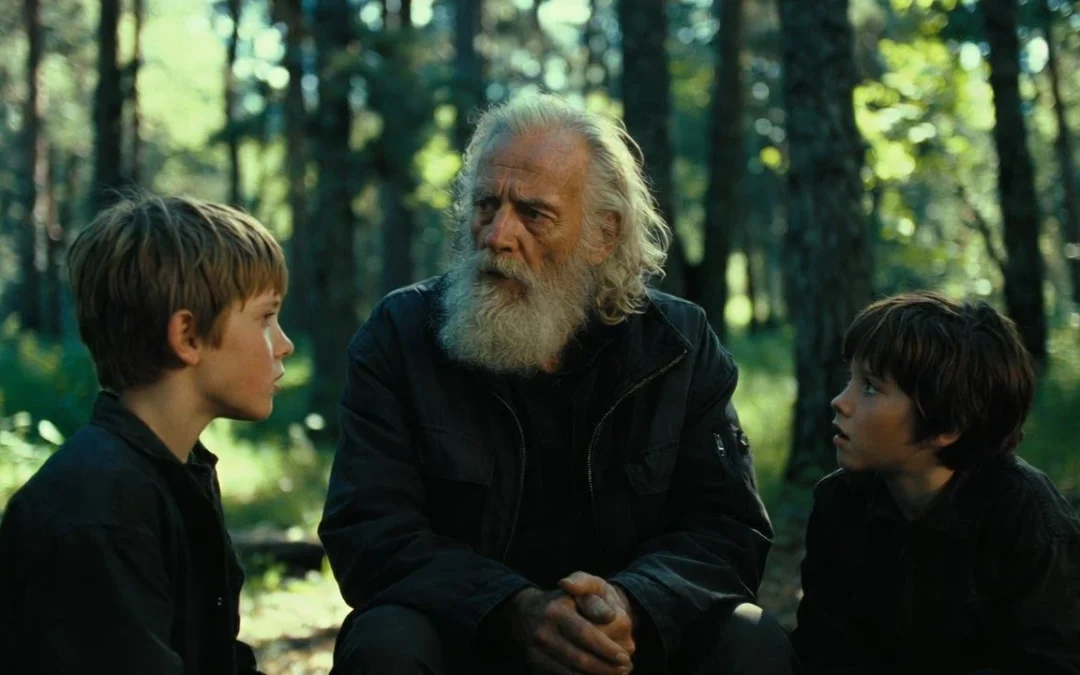Regret is a common human emotion that almost everyone experiences at some point in their lives. It shapes our decisions, influences our outlook on life, and can either propel us forward or hold us back. This article explores the concept of regret, its various forms, how it affects us, and strategies for managing it effectively.
What is Regret?
Regret is an emotional state that occurs when we feel sadness, disappointment, or remorse about something we did or failed to do. It’s the painful awareness that things could have turned out differently if we had made another choice. Psychologists define regret as a negative emotion involving self-blame, often accompanied by thoughts like “If only I had…” or “I should have…”
Unlike other negative emotions such as anger or fear, regret is uniquely human because it requires:
- The ability to imagine alternative realities
- Self-reflection and evaluation of one’s actions
- Understanding of cause and effect
- The capacity to feel responsibility for outcomes
Research shows that regret activates specific areas of the brain associated with error processing and emotional regulation. When we experience regret, our brain is essentially trying to learn from mistakes to improve future decisions.
30 Powerful Examples of Regret
These examples of regret show how it touches all parts of life—love, time, choices, and relationships. Understanding regret helps us learn what really matters. If you recognize these patterns early, you can live with fewer regrets later.
1. Missing a Final Goodbye
John ignored a phone call from his grandfather, thinking he’d call back later. His grandfather passed away that night. That silence became unbearable. He wished he’d picked up the phone. This is the kind of deep, personal regret that lingers.
2. Not Telling Someone You Loved Them
Maria had feelings for her best friend for years. She never said anything. Then he moved away, met someone else, and started a new life. She regretted staying quiet more than she ever imagined.
3. Choosing a Career for Money, Not Passion
David went into finance because it paid well. Years later, he felt empty, stuck behind a desk. He realized he had traded his happiness for a paycheck. This regret grew stronger with time.
4. Letting Fear Stop You
Emma wanted to study abroad. She had the grades, the chance, and the support. But fear held her back. Years later, she often wonders what her life could’ve looked like if she’d just said yes.
5. Saying Something You Can’t Take Back
During an argument, Lisa told her sister something cruel. It ended their relationship. She didn’t mean it, but the damage was done. This kind of regret is sharp and lasting.
6. Drifting Apart from a Good Friend
No big fight. No drama. Just time, distance, and missed messages. One day you realize you haven’t talked in years. And it hurts. Many people feel this quiet, creeping kind of regret.
7. Not Taking Care of Your Health
Mike ignored signs of a health issue. He was too busy. Later, the condition worsened. He wished he had listened to his body. Health-related regret often comes with guilt and fear.
8. Quitting Too Soon
Nina tried starting a business. It was tough, and she gave up early. Later, she met someone who succeeded with the same idea. She realized she gave up too fast. It haunted her.
9. Staying in a Toxic Relationship
Tom stayed with someone who treated him poorly. He was afraid to be alone. When he finally left, he wished he had done it sooner. Wasted years became his biggest regret.
10. Not Traveling When You Had the Chance
Jake always planned to travel. But he kept putting it off. Work, money, excuses. Now he’s older and less mobile. The places he once dreamed of feel out of reach. The regret is real.
11. Not Spending Enough Time With Kids
Rachel worked long hours to provide for her children. But she missed their milestones. First steps. School plays. Now they’re grown. She can’t get that time back.
12. Being Too Hard on Yourself
Some regret comes from how we treat ourselves. Sarah constantly criticized herself, never feeling good enough. Looking back, she regrets the years she spent feeling small.
13. Ignoring a Gut Feeling
Daniel had a bad feeling about a business deal but went through with it anyway. He lost everything. He now says his biggest regret was not trusting his instincts.
14. Not Learning a Skill When You Could
Ella always wanted to learn piano. But she thought it was too late or too hard. Now, every time she hears someone play, she feels a quiet pang of regret.
15. Letting Pride Win
Alex refused to apologize first after a falling out. Years passed. The other person passed away. His pride cost him a friendship. Regret often follows pride.
16. Not Taking School Seriously
Jason skipped class, didn’t study, and barely graduated. Later, when job opportunities passed him by, he felt deep regret. He realized he had hurt his future self.
17. Hiding Who You Really Are
Some people regret hiding their true selves to fit in. They lived a life that wasn’t authentic. Years later, they wish they had been honest with the world—and with themselves.
18. Wasting Time on the Wrong People
Maya gave her best years to someone who didn’t value her. Looking back, she sees how much she gave and how little she got. That lost time became her biggest source of regret.
19. Not Standing Up for Someone
In high school, Ben saw someone being bullied. He stayed silent. Years later, he still thinks about that moment. Regret often grows from what we didn’t do, not just what we did.
20. Spending Too Much Time Online
Lena scrolled hours away every day. She missed chances to connect in real life, to build something meaningful. Later, she realized how much time she had lost.
21. Chasing Approval
Some people spend years trying to please others. Their choices are shaped by what others want, not what they need. Eventually, they regret not living life on their own terms.
22. Being Unkind Without Meaning To
Tom made a sarcastic joke that hurt his coworker. He brushed it off, but it damaged their trust. He didn’t realize until later how much it mattered. Regret can come from carelessness.
23. Not Saving Money Early
Emma always thought there’d be time to save later. But when emergencies came, she was unprepared. Now she regrets the spending habits of her younger self.
24. Breaking Someone’s Trust
Regret often comes from betrayal. James cheated on his partner. It ended the relationship and changed how he saw himself. He still feels ashamed years later.
25. Letting Opportunities Pass
Claire had the chance to move abroad for work. She hesitated, and someone else took the job. Every time she thinks of what could have been, she feels a sting of regret.
26. Not Saying “Thank You”
A teacher helped Liam turn his life around. He always meant to say thanks. He never did. Now that teacher is gone, and the missed gratitude weighs on him.
27. Wasting Potential
Some regret is quiet but constant. Peter had talent, ambition, and chances. But he lacked discipline. Looking back, he knows he could’ve done more. That thought never leaves him.
28. Taking Loved Ones for Granted
Years ago, Anna would ignore her mom’s calls, always busy. Now her mom is gone. She would give anything to hear her voice again. Many people know this kind of regret.
29. Not Forgiving Someone
Sam held a grudge for years. After the other person passed, the anger turned into sorrow. He wishes he had let go and made peace while he still could.
30. Living in the Past
Lisa spent years replaying old mistakes. Regret consumed her. Eventually, she realized she was missing the present by holding on to the past. Regret can trap you if you let it.
Types of Regret
Regret comes in many forms, and understanding the different types can help us recognize and address our own regrets more effectively.
Action vs. Inaction Regret
Action Regret: Occurs when we feel bad about something we did. Examples include saying something hurtful or making a poor financial decision.
Inaction Regret: Stems from things we didn’t do but wish we had. These often include missed opportunities like not pursuing education, not expressing feelings, or not taking risks.
Research consistently shows that while action regrets may be more intense in the short term, inaction regrets tend to be more painful and persistent over time.
Temporal Categories of Regret
Short-term Regret: Focused on immediate consequences, like regretting eating too much at dinner.
Long-term Regret: Centered on life-altering decisions that affect our path, such as career choices, relationships, or education.
Life-course Regret: Broader reflections on how we’ve lived our lives, often occurring later in life.
Domain-Specific Regret
Regrets also vary based on the life domain they affect:
- Career regrets: Missed opportunities, poor job choices, or not pursuing passions
- Relationship regrets: Romantic paths not taken, friendship neglect, or family conflicts
- Self-improvement regrets: Not developing skills, education, or personal growth
- Health regrets: Poor health choices and their consequences
- Financial regrets: Spending, saving, and investment decisions
- Moral regrets: Actions that violated our personal values or ethics
The Psychology Behind Regret
Regret isn’t simply an unpleasant feeling—it serves important psychological functions and is connected to how our brains process decisions and outcomes.
Counterfactual Thinking
At the heart of regret is counterfactual thinking—the mental process of imagining alternatives to past events. When we think, “If only I had studied harder,” we’re engaging in upward counterfactual thinking, which frequently triggers regret.
This cognitive process helps us:
- Learn from mistakes
- Prepare for similar situations in the future
- Understand cause and effect in our lives
However, excessive counterfactual thinking can lead to rumination and chronic regret that damages mental health.
Cognitive Dissonance
Regret often creates cognitive dissonance—the mental discomfort that occurs when our actions don’t align with our beliefs or values. To reduce this discomfort, we might:
- Rationalize our decisions
- Change our attitudes to match our actions
- Seek ways to make amends
Opportunity Cost Awareness
Every choice we make eliminates other possibilities, and regret helps us recognize these opportunity costs. While this awareness can be painful, it also helps us make more thoughtful decisions in the future.
How Regret Affects Us
The impact of regret extends beyond momentary discomfort, affecting various aspects of our lives.
Emotional Impact
Regret can trigger a cascade of negative emotions:
- Sadness and disappointment
- Shame and embarrassment
- Anxiety about future decisions
- Guilt over harm caused to others
- Self-criticism and diminished self-esteem
For some people, these emotions become overwhelming, leading to depression or anxiety disorders.
Behavioral Consequences
Our regrets change how we act in both constructive and destructive ways:
Constructive responses:
- Correcting mistakes and making amends
- Improving decision-making processes
- Pursuing new opportunities to compensate for past inactions
- Personal growth and learning
Destructive responses:
- Rumination and dwelling on the past
- Decision paralysis from fear of future regrets
- Risk aversion and missed opportunities
- Self-punishing behavior
These findings highlight the importance of addressing significant regrets rather than suppressing them.
How to Cope with Regret
While regret is unavoidable in a well-lived life, there are effective strategies for managing its impact and using it constructively.
Self-Compassion Practices
Self-compassion involves treating yourself with the same kindness you would offer a good friend:
- Acknowledge your humanity: Everyone makes mistakes and experiences regret. It’s part of being human.
- Practice self-forgiveness: Recognize that you made the best decision you could with the information available at that time.
- Use gentle self-talk: Replace harsh internal criticism with understanding language.
- Separate actions from identity: Your mistakes don’t define your worth as a person.
Extracting Lessons
Transform regret into wisdom by:
- Identifying the specific lesson: What exactly would you do differently now?
- Analyzing decision factors: What influenced your choice? Were there external pressures, limited information, or emotional factors involved?
- Creating action steps: How can you apply these lessons to current situations?
- Sharing wisdom: Sometimes helping others avoid similar regrets gives meaning to our experiences.
Making Amends
When regret involves harm to others:
- Take responsibility without excuses
- Apologize sincerely if appropriate
- Ask how you can make things right
- Change your behavior going forward
- Accept that forgiveness isn’t guaranteed
Forward-Focused Thinking
Shift from past-focused regret to future-oriented action:
- Set new goals: Create meaningful objectives that align with your values.
- Take small steps: Begin addressing regrets through manageable actions.
- Practice gratitude: Appreciate what’s going well in your life despite past regrets.
- Limit rumination time: If needed, schedule specific times to reflect on regrets rather than allowing them to intrude constantly.
Is Life Without Regret Possible?
Many people ask themselves: Is it really possible to live without regret? It’s a fair question. Some self-help books say yes. Others say regret is just part of being human. The truth likely falls somewhere in the middle.
Regret is the feeling that something could have gone better—if only we had acted differently. And since no one makes perfect decisions all the time, regret is hard to avoid completely. It comes with the territory of living, making choices, and growing older.
But here’s the thing: You can live with fewer regrets. That part is in your control.
You can pause before making a big decision. You can say what matters before it’s too late. You can treat people well. You can try, even if you’re scared. That doesn’t guarantee a perfect life. But it does help build a life you’re less likely to look back on with pain or guilt.
A life without regret doesn’t mean a life without mistakes. It means a life where you learn, grow, and do your best. You accept that some things won’t go your way. You forgive yourself for the past. You focus on what’s still in front of you.
Some people say they have no regrets. That’s often not the whole truth. What they might mean is—they’ve made peace with their choices. And that’s something anyone can work toward.
A regret-free life may not be fully possible. But a life with fewer regrets? A life where you act with care, speak with honesty, and try when it counts? That’s a real goal. And it’s worth aiming for.
If you’re wondering how to avoid regret, start small. Think before reacting. Listen to your gut. Don’t put off the things that matter most. That’s not just good advice—it’s the key to peace of mind.
In the end, regret isn’t the enemy. Staying stuck in it is. The people who live well aren’t perfect. But they keep moving forward. They learn from what went wrong. And they don’t waste time wishing they could go back.
Because life doesn’t wait. And neither should you.
When Regret Becomes Unhealthy
While normal regret can be productive, it sometimes becomes harmful and may require professional help.
Warning Signs
Seek support if regret:
- Dominates your thoughts for extended periods
- Interferes with daily functioning
- Leads to depression or anxiety symptoms
- Causes suicidal thoughts
- Prevents you from taking healthy risks
- Becomes a central part of your identity
Learning from Regret: A Path to Growth
When approached constructively, regret can become a powerful catalyst for personal development and positive change.
Regret as a Teacher
Our regrets highlight:
- Values we hold dear but may have neglected
- Skills or qualities we need to develop
- Patterns we repeat that cause problems
- Areas where we need to set boundaries
- Opportunities for greater authenticity
Finding Meaning in Regret
Meaning-making transforms painful regrets into valuable life chapters:
- Narrative integration: Incorporate regrets into your life story in a way that makes sense and provides continuity.
- Value clarification: Use regrets to identify what truly matters to you.
- Post-traumatic growth: Some of life’s most painful regrets can lead to profound personal growth.
- Legacy considerations: How might your regrets shape what you want to leave behind?
Regret-Minimizing Strategies for the Future
While we can’t avoid all regrets, we can reduce their likelihood:
- Values-based decision making: Make choices that align with your core values.
- Consider future regrets: Ask “Will I regret this decision in 10 years?”
- Broaden your perspective: Seek advice and different viewpoints before major decisions.
- Balance risk and caution: Both excessive risk-taking and excessive caution produce regrets.
- Practice mindfulness: Be fully present when making important choices.
Conclusion
Regret is an inevitable part of being human. Rather than trying to avoid it completely, we can learn to use it as a compass that guides better decisions and a more authentic life. By understanding the nature of regret, recognizing common patterns, and developing healthy coping strategies, we transform this difficult emotion from a burden into a valuable tool for growth.
The goal isn’t a life without regrets—that would mean a life without risks, learning, or meaningful choices. Instead, we can aim for a life where regrets are acknowledged, processed, and ultimately integrated into a richer understanding of ourselves and our journey.
Remember that even our deepest regrets can become stepping stones to greater wisdom, compassion, and purpose if we’re willing to learn from them rather than be defined by them.
Read also: 100 Things That Aren’t Real (But We Wish They Were)
The Most Popular on BitGlint

30 Temptation Examples & Definition
Temptation is a part of everyday life. Everyone faces moments where they feel pulled towards something they know might...

30 Examples of Gathering & What It Means
The word gathering shows up in everyday life more than we think. People gather at dinner tables, sports games, places...

30 Emotional Pleasure Examples & Meaning
Emotional pleasure comes from experiences that satisfy the heart, not just the senses. It’s the feeling you get when...

Top 50 Biggest Examples of Controversy
Controversy has been part of human society for as long as people have disagreed. Healthy debate can help a society...

30 Seduction Examples & Meaning
Seduction is part of how people build attraction, create emotional tension, and connect on a deeper level. From a...

100+ Things That Are Cold
Cold is something most people understand the moment they feel it. You step outside on a freezing morning. You grab a...

Top 30 Desire Examples & Definition
Desire is a powerful force that drives much of human behavior, shaping our goals, dreams, and everyday decisions. It's...
Get Inspired with BitGlint
The Latest
30 Liminal Space Examples & Meaning
You’ve probably been in a liminal space without even knowing it. An empty hallway in a hotel. A school building during summer. A quiet airport at night. These places feel strange—but also oddly familiar. You’re not where you were. You’re not yet where you’re going....

40 Powerful Anecdote Examples
Stories shape how people understand ideas - but not all stories are the same. One of the most common and useful forms is the anecdote: a short, focused story that captures a single moment to make a point clearer or more memorable. You encounter anecdotes constantly -...
30 Nature Worship Examples & Meaning
Nature has always mattered to people. Long before modern religions, people looked to the sky, the land, and the seasons for meaning. They saw power in the sun, mystery in the moon, and spirit in rivers, trees, and animals. They didn’t need churches or scriptures to...
Top 30 Lifelong Learning Examples & Why It Matters
Lifelong learning is an essential practice for personal and professional development, offering endless benefits that span across various aspects of life. It involves the continuous pursuit of knowledge and skills, far beyond the confines of traditional education...

